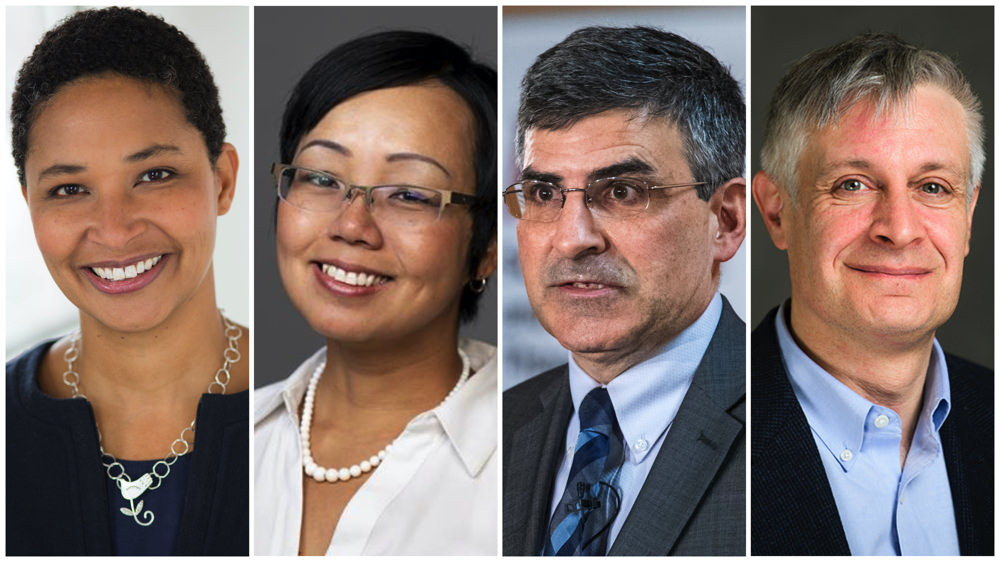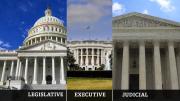Several months before the invasion of the United States Capitol threw the nation’s seat of legislative power into peril, the Annenberg Public Policy Center’s survey on civic knowledge found that barely half of American adults can name all three branches of government, and 20 percent cannot name any rights protected by the First Amendment. Remarkably, these figures constitute improvements on the results of the previous 15 years of this annual survey. Even more troubling, the separate World Values Survey has found that since the 1950s, ever fewer numbers within each birth cohort in the United States has ranked it “essential” to live in a democratically governed country. Not even a third of Americans born in the 1980s think democracy is vital. This state of affairs follows prolonged disinvestment in the fields of history and civics: today, a new report reveals, federal spending per pupil in these subjects averages $0.05, whereas STEM education (science, technology, engineering, and mathematics) per pupil averages $50—a thousandfold difference in funding allocation.

Pictured (from left to right): Danielle Allen, Kei Kawashima-Ginsberg, Paul Carrese, Peter Levine.
Credit (from left to right): Laura Rose; Alonso Nichols/Tufts University; Charlie Leight, Arizona State University; Alonso Nichols/Tufts University.
That report, Educating for American Democracy, asserts that civic education needs massive investments of personnel, funding, attention, and energy in order to end this crisis threatening the future of the American democratic experiment—the conclusion of a commission funded by the U.S. Department of Education and the National Endowment for the Humanities. Its report was assembled by a team of scholars and educators from Harvard (Conant University Professor Danielle Allen, the current director of the Edmond J. Safra Center for Ethics, and Trumbull professor of American history Jane Kamensky, director of the Schlesinger Library), Tufts University (Kei Kawashima-Ginsberg and Peter Levine), Arizona State University (Paul Carrese), the education nonprofit iCivics (Louise Dubé), and the Arizona Department of Education (Tammy Waller). “We as a nation have failed to prepare young Americans for self-government,” the authors write, “leaving the world’s oldest constitutional democracy in grave danger, afflicted by both cynicism and nostalgia, as it approaches its 250th anniversary.”
The report offers a “road map, not a mandate or curriculum” for reform, Allen says: a flexible set of recommended approaches and a robust archive of materials meant to put a renaissance in civics and history education in reach of stakeholders at all levels, from local school boards and individual teachers to state and federal policymakers. Key conclusions of the project include:
- Schools should integrate the teaching of history and civics into a complementary curriculum. Especially at the high-school level, civics should not take the form of a “one semester and done” requirement.
- States, districts, and teachers should shift from breadth to depth. Many state civics requirements read as long lists of facts and principles to be memorized. States should reconceive educational goals in terms of open-ended questions (such as, “How have mechanisms of majority vote interacted with minority-protecting mechanisms over time?”) to stimulate analytical thinking rather than memorization (“What is a Constitutional Convention?”).
- Instruction in all grades should not paper over disagreements on contentious civic issues, but rather teach how to “cultivate civil disagreement and reflective patriotism” in age-appropriate ways.
- All levels of government should work together to enlarge and continuously support the nation’s corps of history and civics teachers (the report proposes the ambitious goal of one million civics teachers by 2030), with robust mutual support networks and support from communities and states. University-level historians and political scientists should help put high-quality recent research into the hands of schoolteachers.
The report’s authors found it important to acknowledge forthrightly the fact that fiery ideological debates over the teaching of American history and politics have hampered advancements and improvements in civics and history at all levels. In the face of arguments over standards and narratives, inaction prevails. The authors mention that in 2009, the National Governors Association was able to establish shared standards for the Common Core in English and the STEM fields, but not in social studies, “because crippling debates over our history made compromises needed for a working debate impossible.” Consequently, the new report aimed to incorporate opinions from a wide spectrum of political beliefs: more than 300 individuals—progressive, conservative, and nonpartisan, including six former U.S. secretaries of education, both Republican and Democratic—as well as the perspectives of organizations ranging from the left-leaning New America Foundation to the right-leaning Jack Miller Center, and well-respected nonpartisan bodies such as the American Bar Association, the American Historical Association, and the Smithsonian Institution.
The report urges the cultivation of “civic friendship,” terminology introduced by Allen in her 2004 book Talking to Strangers: Anxieties of Citizenship Since Brown v. Board of Education. The authors define civic friendship as “the capacity and commitment to ‘fighting fair’—to engaging in debate with a commitment to honesty…[It] need not be characterized by ‘civility’ in the sense of polished manners, but it should be characterized by a commitment to the well-being of one’s interlocutor as well as oneself.” This capacity needs rebuilding from the ground up, according to the new report: schools are starting from a position of institutional atrophy and upheaval. “Students must be prepared today for a world of hyper-partisanship, of weak civic associations, and of social media instead of printed metropolitan daily newspapers,” the authors urge.
Report coauthor Kei Kawashima-Ginsberg, who researches civic engagement, notes that as schools resume classroom teaching and heal after the disruptions caused by COVID-19, these questions take on renewed importance for communities and teachers. Crucially, civic-education reform will require support not just for students, but also for teachers within their communities. “[COVID-19] really affected how we thought about our instructional strategies. We couldn’t just include direct instruction with great content strategies for inquiry…we also had to take a step back to say, ‘Let’s think about our commitment to all students,’” she explains. Doing so requires that teachers create a good learning environment for students, and that, in turn, requires communities to support teachers. The report warns that previous efforts to reform social-studies education failed largely because they were not backed up by a commitment to implementation: to hiring teachers. And it entrusts communities with the responsibility of ensuring that teachers have access to proper training, certification, and continuing professional-development resources. “It demands collaborative effort,” says Kawashima-Ginsberg, particularly in light of “challenges that we have faced this past year, and that we may face in the future, too.”
Educating for American Democracy follows a related June 2020 report, Our Common Purpose. That document arose from a project also co-chaired by Allen, together with Stephen Heintz, president of the Rockefeller Brothers Fund foundation, and Eric Liu, founder of Citizen University: the American Academy of Arts and Sciences’ Commission on the Practice of Democratic Citizenship. Our Common Purpose examined the structure of American democratic institutions and recommended sets of policies to help implement better the democratic prerogatives of the United States Constitution.









